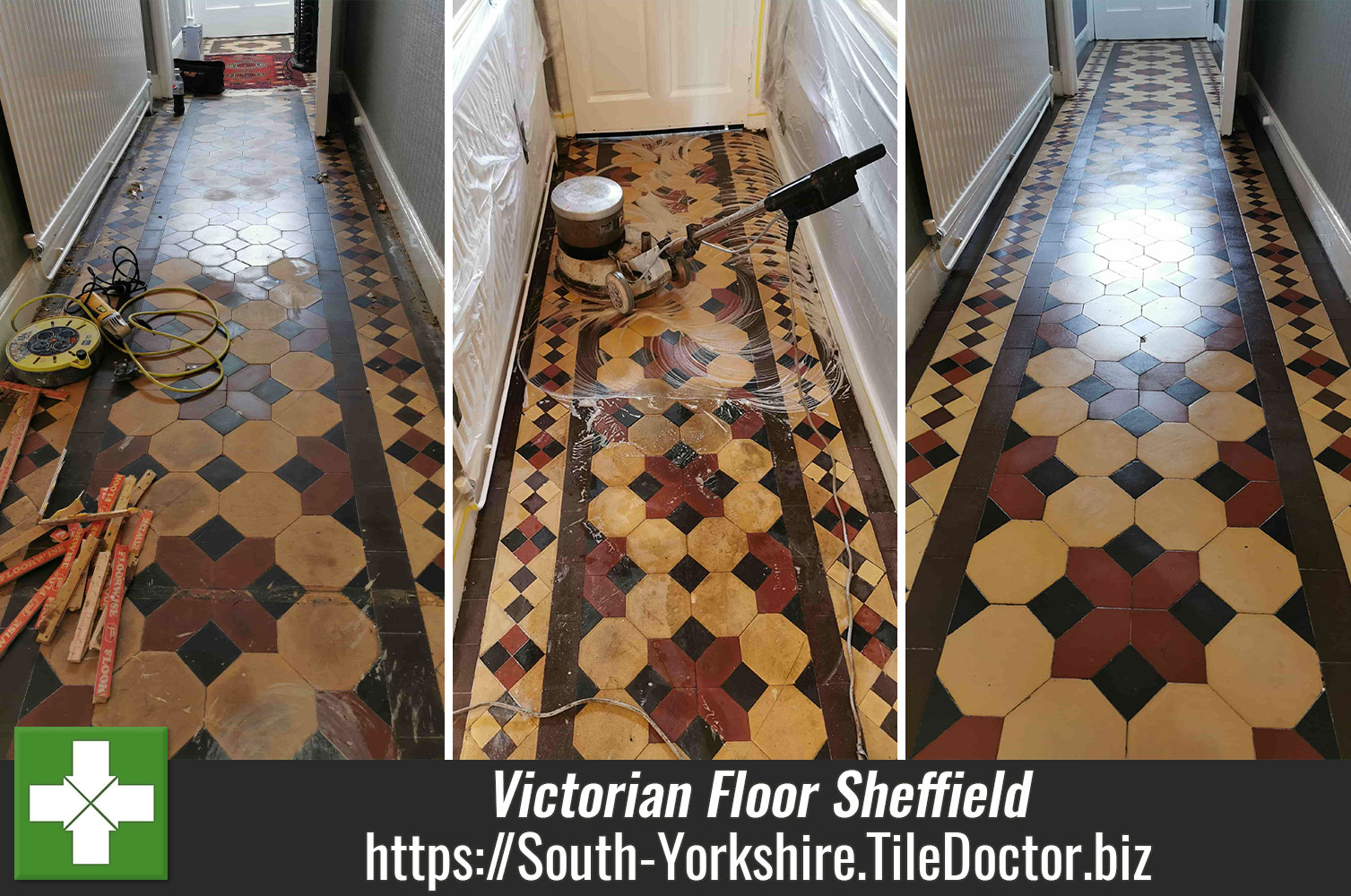Removing Old Glue from Victorian Tiles in South Yorkshire with Remove and Go
During renovations at this beautiful house in Sheffield the discovered an original Victorian tiled floor underneath the hallway carpet, incredibly they also uncovered access to a cellar, neither of which they knew idea existed and both were a massive bonus!

Once the floor had been fully uncovered it was in a pretty good condition, some repairs were needed but nothing too dramatic. There was damage around the radiators where the heating engineers have just chiselled through the tiles. Plus, the tiles were stained by adhesive where the carpet grippers had been glued to the tiles.

I discussed with the client the work needed to carry out a full restoration and gave them a quote. They were happy to accept and asked us to proceed as soon as possible.
 |  |
Cleaning and Repairing a Victorian Tiled Hallway Floor
Work started with the removal of the carpet grippers and scraping up as much of the glue as possible, it took some shifting, but it did come up. Any remaining glue was softened up with the application of neat Tile Doctor Remove and Go and then carefully scraped off. Tile Doctor Remove and Go is a multi-purpose stripper that is ideal for removing adhesives and other stubborn coatings such as sealers.

The repairs were done next which involved colour matching replacement tiles and cutting them to the right size. A fast-setting adhesive was used to fix them in place and once the floor had dried it was time to move onto the cleaning.
More Tile Doctor Remove and Go was applied, left to soak for ten minutes, and then worked in with a weighted 42kg buffer machine fitted with a very coarse diamond burnishing pad. This combination not only removed the old sealer but did a good job of removing ingrained dirt as well. The floor was rinsed with water and the soil extracted using a wet vacuum.

Once done the process was repeated using Tile Doctor Acid Gel, this removes stubborn staining and being an acidic product will counter any efflorescence which is a common problem with these old floors. Old floors like this one don’t have a damp proof membrane installed to prevent moisture underneath the tiles rising through the floor and depositing salt as it evaporates at the surface.
A wet vacuum was used to extract the soiling generated during the cleaning process and every tile was rubbed with microfibre cloths to remove the last of the residue.

A nice feature seen on a lot of Victorian floors is an upside tile left by the tiler on purpose, the picture shows the one on this floor. They believed it brought good luck.

Sealing a Victorian Tiled Hallway Floor
The floor was left to dry off overnight and I returned the following morning to continue with the final phase of the restoration. Before starting though, the first job was to check the floor was dry using a moisture meter. Once satisfied six coats of Tile Doctor Seal and Go Extra we applied leaving the floor with a beautiful sheen finish.

The client was very pleased with the newly restored floor, and for ongoing cleaning I recommended the use of Tile Doctor Neutral Tile Cleaner. This product has a neutral Ph which is ideal for sealed surfaces; stronger bleach-based cleaners are simply too strong for use on sealed tiles and will erode the sealer prematurely.

Source: Tile Cleaning and Renovation Service in South Yorkshire
